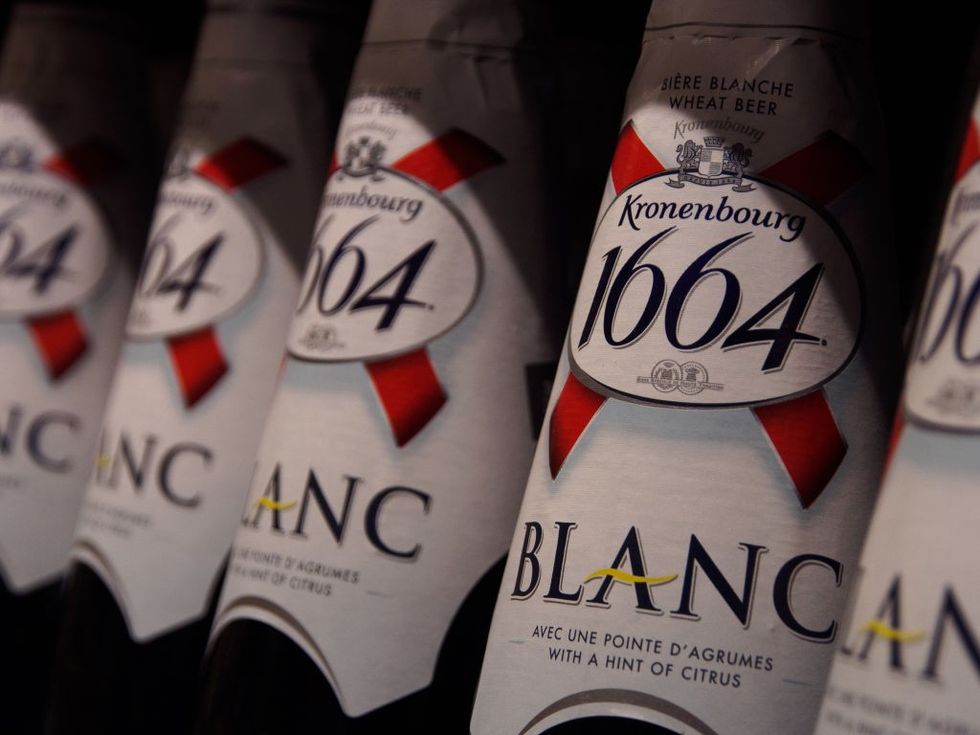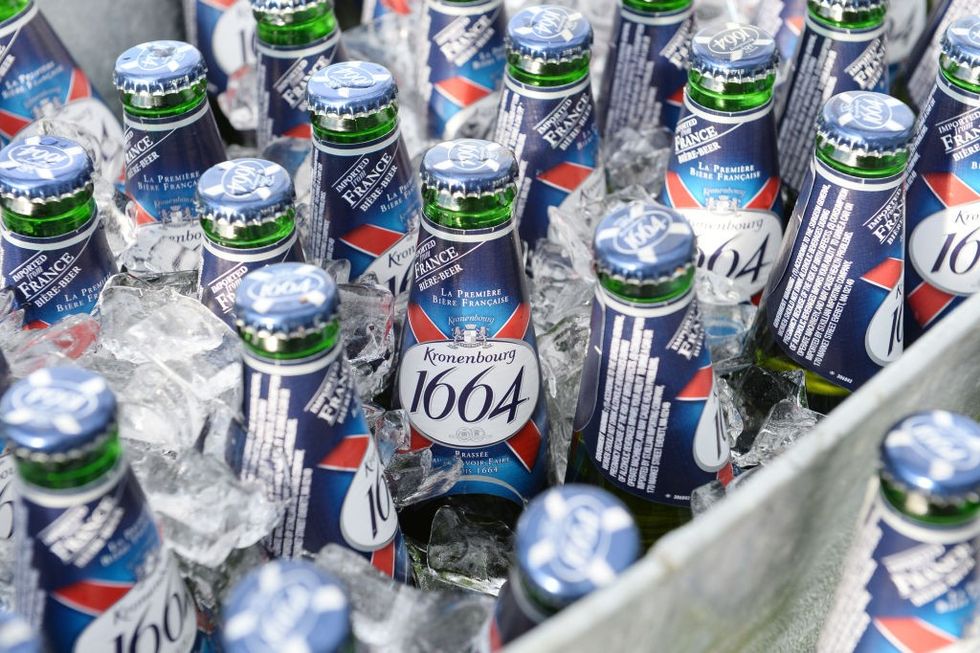A popular beer has caused fury after it revealed it was cutting its alcohol content.
Kronenbourg 1664, recently rebranded 1664 Bière, has gone from five to 4.6 per cent ABV.
The beer, which was brewed in the UK by Heineken at its Manchester brewery before moving to Northampton, has been slammed on social media.
One punter blasted: “It’s shocking, nothing like the original.” Another wrote: “Another beer bites the dust in the UK.”
The announcement has caused outrage among punters
Getty
However, brewer Carlsberg Marston hit back, claiming that British punters preferred weaker drinks, reports The Sun.
A spokesman said: “Many beers in the UK are brewed at a lower ABV than those in Europe, based on consumer preference and category norms.
“Through our collective brewing expertise, we are able to brew excellent beers with slightly less alcohol to deliver great taste and quality.”
It comes as a new study has revealed two thirds of beer and wine sold in British pubs is being under-measured.
LATEST DEVELOPMENTS

Kronenbourg Blanc
Getty
Around 70 per cent of drinks, when checked by Trading Standards authorities, came up short, prompting outrage from public figures as alcohol prices continue to rise.
The Chartered Trading Standards Institute (CTSI) conducted 137 test purchases and found 96 drinks were not full.
The CTSI’s Chief Exec, John Herriman, said: “While this is a snapshot, it is the first time that we have been able to build a national picture of how widespread short measuring of alcoholic drinks are.
“The potential detriment to the average consumer of around £115 every year suggests there is the need for more comprehensive research to better understand the impact of short measures, not just for alcoholic drinks but across a broader spectrum of consumer goods.

The beer was formerly known as Kronenbourg 1664
Getty
He continued: “We are calling on the hospitality sector to ensure that consumers get value for money by making sure they are correctly measuring the drinks they are serving to customers in the nation’s pubs and bars and for further research in this area.”

